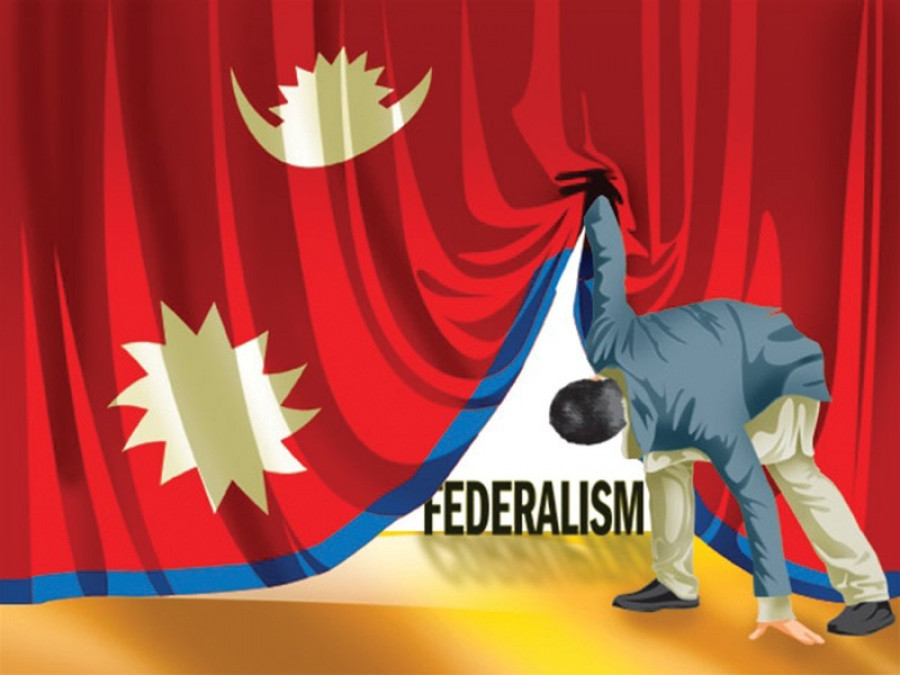National
Centralised mindset and lack of accountability challenges to federalism
Experts stress elections that everyone can afford to take part in so that good people have equal chances of representation.
Binod Ghimire
The centralised mindset and lack of accountability in the political leadership are the major challenges towards implementing the federal constitution, according to legal experts.
More than a decade since an amendment to the Interim Constitution (2007) adopted federalism, there hasn’t been a change in the mindset of the rulers, they say.
Mohan Lal Acharya, former adviser to the Constituent Assembly, said there has been immense interference by the federal government in the works of provincial and local level governments.
“The federal government is run by people who have a unitary and centralised mindset. This is why a number of necessary laws are yet to be formulated,” said Acharya in a virtual programme organised by the Human Rights Journalists’ Association. “This is a serious challenge towards implementing the federal constitution.”
Acharya said the federal government hesitates even to recognise the authorities of the federal and local governments explicitly enshrined in the Constitution of Nepal, which is already five years old.
Expressing their views, legal and constitutional experts said the people in power are still not ready to accept that all three tiers of government are independent with parallel powers. As argued by the experts, Prime Minister KP Sharma Oli often claims that the provincial and local governments are extensions of the federal government without independent identity.
Presenting his views, former chief justice Kalyan Shrestha said the huge political changes the country has witnessed over the years don’t reflect in the acts of those in power. He said the people fought for the changes expecting that the revolution would bring about improvements in their daily lives.
“We have a progressive constitution but that makes no sense unless it gets implemented and ordinary people get to reap the benefits,” Shrestha said, adding, the fact that the federal parliament is yet to endorse the crucial laws shows that the centre will make every possible effort to delay the devolution of power.
Five years after the Constitution of Nepal was enforced, at least half a dozen laws urgently required haven’t been endorsed by the federal parliament while the federal government is yet to draft some of them.
Laws related to land, police force, citizenship and health services are pending in the federal parliament while the federal government is yet to draft the federal civil service bill.
“The country was federated to ease the people’s access to government services,” said Shrestha. “Having 761 governments will make no sense if the federal government, like in the unitary system, continues to make every decision.”
The experts argued that the expensive electoral system the country has adopted needs to change so that the representation of lawmakers becomes more inclusive. Rukmini Maharjan, a lecturer at Nepal Law Campus, said the expensive electoral system has shut parliament for many honest leaders because they cannot bear the cost.
Several studies suggest that elections have become excessively costly in Nepal as billions of rupees get spent in a single poll.
A report by Election Observation Committee, a poll monitoring body authorised by the Election Commission, showed that Rs69.42 billion was spent during the local level elections held in three phases in 2017. The amount is nearly twice the budget of the Upper Tamakoshi Hydropower Project, the country’s upcoming largest hydroelectric plant.
“Federalism will be weakened if there isn’t proper representation of the various communities,” she said. “Expensive election is a hindrance to their proper representation.”




 18.12°C Kathmandu
18.12°C Kathmandu














